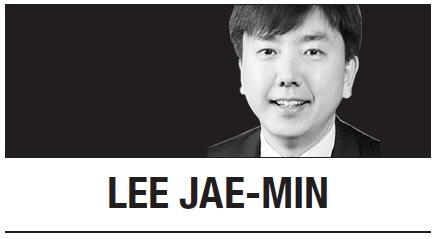 The same scenes are repeated each fall. Angry faces, shouting matches and group boycotts, and all these in front of national TV cameras. The National Assembly started this year’s plenary national audit on Oct. 12. It will run for 20 days until Oct. 31. The first four days of the audit indicate that we can expect the same this year as well.
The same scenes are repeated each fall. Angry faces, shouting matches and group boycotts, and all these in front of national TV cameras. The National Assembly started this year’s plenary national audit on Oct. 12. It will run for 20 days until Oct. 31. The first four days of the audit indicate that we can expect the same this year as well. To governmental agencies and entities with state funding, the annual audit is one of the most critical moments of the year for leaders and organizations alike. Not only that, any entity can be subject to the legislative audit under the law if deemed necessary by the National Assembly. So, CEOs of private corporations and even foreign corporations are thus summoned for questioning. A lot of pressure for them indeed.
In a democratic society, the legislative body’s inspection of the national business cannot be emphasized too much. It is the hallmark of the modern democracy. But the National Assembly’s almost limitless authority of the inspection and ineffective conduct of the audits have long been criticized in the country. Here are the most common disappointing scenes in my view.
One: Long lines and endless waiting. You can see dozens of officials sitting behind a person responding to questions from lawmakers. They are directors, director generals and assistant ministers. The protocol is that only the minister is supposed to answer, so all other officials are mobilized and seated behind the minister to assist him or her. They shuffle through thick documents and files and pass on notes to the minister. They are not all accounted for. Other working level officials are not even able to enter the room and instead crouching in hallways. With every key official in the National Assembly, the daily wheel of national business comes to a halt. For 20 days, some wheels somewhere stop spinning or slowly moving.
Two: Long paper trails and extensive information. Before the session, lawmakers (and their aides) send requests to target entities seeking information and documents in preparation for the national audit. Tables, charts and forms are sent to be filled out. Some requests demand an extraordinary amount of information -- a dragnet fishing expedition as opposed to targeted pinpointing. A month or two before the audit is the busiest moment for officials and employees to collect information and organize documents in response to seemingly endless requests from the National Assembly.
Three: One-way communication. Conversations at the national audit are far from two-way, interactive communication. National assemblymen spend a long time to admonish or rebuke a head of an agency with stern faces, and only a short time is given for the person to respond. Sometimes questions end with “you don’t have to answer,” and answers are interrupted with “your answer is not necessary.” People would expect serious and professional two-way interaction between ministers and lawmakers.
Four: Politicization. National audit is abused by some lawmakers as their PR occasion or as an opportunity to score political points. Ruling and opposition party members engage in fierce verbal battles with fingers pointing in all directions. Harsh words are exchanged. Those words are beeped in news coverage. After that, one group retires from the room in protest. The other remaining half then continues to carry on. Serious discussion based on a bi-partisan spirit is a rare item in this environment.
Legislative scrutiny of national affairs is the final line of defense for a democratic society. National Assembly’s audits have dug up blunders, mishandling and mistreatment by government agencies. No one would countenance suppression of the authority of the National Assembly as a national watch dog. But there’s got to be a way to fix the four scenes above. As long as the four scenes are the first image of the audit, the National Assembly only undermines its own authority. Will this fall be the first step for a change?
By Lee Jae-min
Lee Jae-min is a professor of law at Seoul National University. He can be reached at jaemin@snu.ac.kr. -- Ed.



![[Herald Interview] 'Amid aging population, Korea to invite more young professionals from overseas'](http://res.heraldm.com/phpwas/restmb_idxmake.php?idx=644&simg=/content/image/2024/04/24/20240424050844_0.jpg&u=20240424200058)

![[Pressure points] Leggings in public: Fashion statement or social faux pas?](http://res.heraldm.com/phpwas/restmb_idxmake.php?idx=644&simg=/content/image/2024/04/23/20240423050669_0.jpg&u=)












